Stanford startup School: Non-trivial aspects of teamwork

Ctenfordsky course CS183B: How to start a startup
Sam Altman and Dustin Moskowitz: How and why to create a startup? < Sam Altman: How to form a team and culture startup? Paul Graham: < a href = "http://habrahabr.ru/company/friifond/blog/242743/"> Illogical startup ; Adora Chyung: Product honesty and curve ; Growth hacking ; Peter Thiel: Competition - the lot of losers ; How to build a monopoly? Alex Schultz: Introduction to growth hacking [1 , 2 < / a>, 3 ]; Kevin Hale: The subtleties of working with user experience [ 1 , 2 ]; Tang, Williams and Kahn: Start small < / a>; How to work with the IT media? Andreessen, Conway and Conrad: How to attract investment ? [ 1 , 2 , 3 ] Brian Chesky and Alfred Lin : The secret to the company's culture? Ben Silberman brothers Collison: Non-trivial aspects of teamwork
Sam Altman: Our guest Ben Silberman, creator of Pinterest, as well as John and Patrick Collison - founders Stripe. These people should be better versed in all matters of corporate culture and business creation.
Today, we discuss three topics. To begin with, in the framework of summarizing the previous lecture, we will discuss in general terms the corporate culture. After analyze in detail examples from the aforementioned companies and the process of creation of the first employees. We then discuss the change and development teams after their company became the largest as well as learn how they worked with the corporate culture.
I do not know the exact number of employees in their firms [in Pinterest and Stripe] today, but I know that this is a very large organization. For a start, I would like to ask a fairly simple question: What are the key components of corporate culture were the most important in the creation of firms?
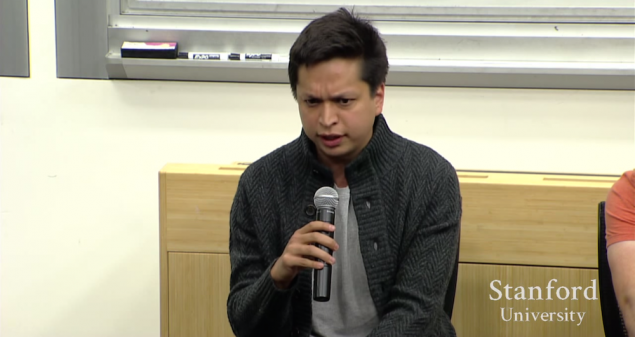
Ben Silberman: Good. You ask, what is most important? In our company, we pay attention to a few points. Firstly, what are the people we employ, and what are their values? Secondly, what we do every day and what do we do? Next, we want to share, and how to encourage employees for their work?
This was, accordingly, should the question of how to punish employees, but in general, I believe that if engage in activities focusing on the reward system, it gives a better motivation than if to emphasize the system of punishment. These four points are the key to our company.
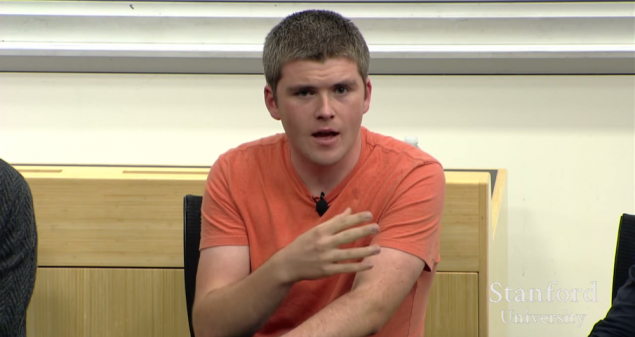
John Collison: What is the emphasis in the company Stripe done more than other companies - so it is permanently transparency. I believe that it has always had great importance for Stripe, but at the same time in respect of it there is some misunderstanding. People mostly speak only about hiring a truly talented people and empowering them major powers.
In this case, information transparency contributes to this. We believe that if all is well aware of the activities Stripe and sincerely share the ideas of the company, while all have free access to information and a good understanding of the current state of Stripe, a lot of it helps to effectively implement teamwork.
It also allows the company to forgive many mistakes, if something goes wrong in the process of development of a startup, as often happens. When our company has become quite large (in the beginning we had only two people - but now we have one hundred and seventy employees), we spent a lot of effort to create a system that ensures transparency. Because when the company employs 170 people, you need to tell them so much information that it is not to convey to all employees some traditional methods. Therefore, we use e-mail and similar tools - later we'll talk more about that.
But overall information transparency is one of our key factors that help us to work more efficiently. Blockquote>
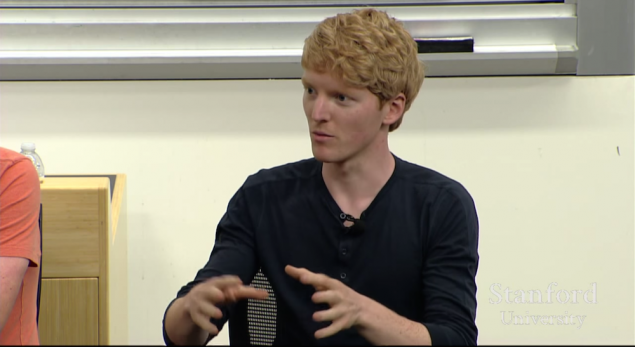
Patrick Collison: Corporate culture to some extent, is the solution of problems with the implementation of a large volume of tasks. For example, when you start working on some project, at first you do everything yourself. But you are not able to do alone all that is required to obtain the final product. And thus, the company appears more employees.
In an ideal situation, you should be involved in every decision the company, but, of course, you are not capable. Did you do the task if the company employs two people, but definitely will not be able to do this if you are working with five or ten employees. They very quickly become 150, and then this task is absolutely impossible.
And thus the corporate culture - it is a certain order of relations, which is necessary to maintain that as a result of you have participated in all decision-making fewer. In this regard, the importance of culture becomes evident. Blockquote> Some decisions that you take directly, decreases exponentially, provided that the increase in the number of employees of your company takes place as rapidly as in the majors. Of course, this is extremely important.
Corporate culture is useful in many situations. For example, typing employees in the company, it is necessary to understand that hiring ten people, you are, in fact, indirectly, hire a hundred, because each of them can lead to a further ten. And we need to think longer about what will these 90 people. Everything will depend on the particular company, but in general, I think the main thing - to think abstractly.
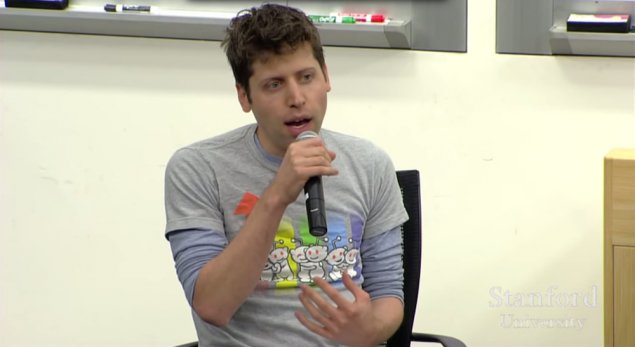
Sam Altman: Many in his speech touched on the issue of employment of the first ten employees. If you do it wrong, in principle, the company will never be able to develop. However, none of you have not told exactly how to do it. So the next question is: What do you look for when looking for the first ten people to form the correct corporate culture? How exactly did you find them?
Ben Silberman: I think it all depends on the particular company. For us it was a very straightforward process. I was looking for people that would like to work and I thought talented. I have read many books on corporate culture, as if something I do not know the first thing I read about it.
All authors have their specific concept, but I think that the biggest mistake is that the corporate culture is perceived by people something of the process of construction of buildings, while it is more like the cultivation of the land. You are planting corn, and then pull out the weeds, if they become too much. When we hired the first employees, we were looking for more people like us.
I usually pay attention to the four quality , which I really appreciate in people. I was looking for hard-working people, very honest and unselfish. I was looking for creative and inquisitive people have wondered many things.
Some of our first employees - some of the most unusual people. They were engineers, but at the same time they were just crazy hobby. For example, one man created his own board game with their elaborate rules. Another very fond of focus, not only created the application to perform tricks, but also recorded a video about how he did it, for the announcement. And I think this is the eccentricity has been extremely useful. Blockquote> People who are interested in a lot of areas and which in this case are truly outstanding in any one, usually create a really high quality stuff and also work well in a team.
Finally, we appreciate the people who want to create something special, and at the same time not proud of it, who are willing to take a risk and create something more important than themselves. And people have a huge selection of where to go to work.
Our office, for example, at the time was in a terrible state, and no one paid. There was not any particular reason to stay in our company, but the desire to create something for her. On the contrary, there were many reasons to leave the company. And the choice of the people - this is what I really appreciate, looking back. Because I knew that people would come to us from the most honest intentions, giving up another job somewhere else, the normal salary, net of offices and high-quality equipment just to be able to work in our company. Many of these properties have been developed and strengthened in our current employees.
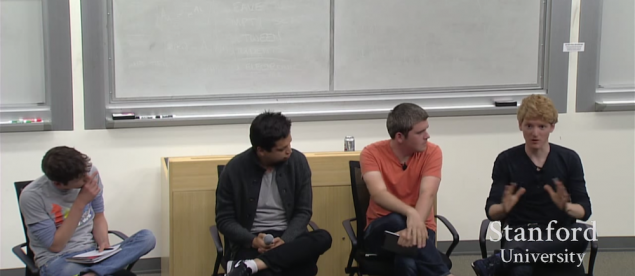
John Collison: find the first ten employees really hard because you are doing it at a time when your business is nobody knows. Nobody wants to work with you. You - just a couple of strange people working on a strange idea.
Patrick Collison: and even friends of those whom you hire, advise them not to go to work in your company.
For example, in the case of our second employee, when he accepted a job offer or even just going to his best friend the night before literally pounced on him, trying to explain why it should not work for us, and it will destroy his life. In the end, he still went to work with us, and in fact one of his friends now also works in Stripe. Blockquote> That's what we have to deal.
John Collison: and complexity also lies in the fact that no other group of employees will not have such a strong influence in the company, as these first ten people. But I think that in the view of most people search for employees is that you go to LinkedIn and just, as the restaurant menu , choose "dish" one after the other, and thus the dial command. < br />
At least in our case, to do this, we had a very long time to persuade friends and acquaintances who you go to work in our company. We did not have a large audience, and then we are still in college, so it was almost impossible to find people with whom we could work with. Thus, many of the first employees were Stripe people of whom we have heard from friends.
It is also noteworthy that all of them were just starting their careers, or have not yet been recognized as specialists. I>
If a person is already known as a good specialist, it is likely he already has a job and it suits him. Therefore, we tried to find people like, for example, our designer, who was eighteen, he was in high school and then was still in Sweden. Our technical director, in turn, went to college.
Many of these people were just starting their careers, and we could take them, building on two factors: the fact that they were really talented or gifted seemed. And we unknowingly walked along the second path.
Patrick Collison: When you are looking for the right people, you need to think like a professional investor and look for human resources, which is not so in demand in the market. It is not necessary to employ, for example, friends from Facebook, Google and similar companies, as they have already declared themselves in this area. If they want to join you, then that's great, but these people are usually more difficult to convince. Yesterday afternoon, John and I tried to remember what the general features characterized the first ten of our employees and which ones were the most significant. And I want to summarize all that has been said, let the compressed advice that I think will be useful.
Our first ten employees among other things has such important qualities as the utmost sincerity and directness i>. I believe that this is a very useful quality and with the people who possess them, to work comfortably. So people trust the staff, and they also think soberly in solving problems. These people mostly prefer to bring the case to the end. After all, many are interested in all in a row, and only a few are really eager to finish begun.
Many advised to seek workers resume from GitHub, but I think it's not quite right, because at this site encourage more involvement in various activities. I think it is more important to work with someone who spent, for example, two years to the study of any particular region i>.
And finally, the third quality that we would like to see our employees - it is a very serious attitude to their work i>. That is when people can not endure, even if any change is made properly.
In the past, we did a lot of strange things in this regard, which may have to do and not worth it. How seriously we treat our employees to detail borders on insanity. At the time, every time there was an error for any query API, to each of us receives a message by e-mail and telephone.
We felt awful if an error occurs, the user can not solve on their own. In addition, we checked all e-mail for the slightest grammatical and spelling errors and corrected each other. Because we were afraid to even send one letter with errors. Anyway, here are the three most important qualities that we have identified: sincerity, serious attitude to work and the desire to always finish the job. Blockquote>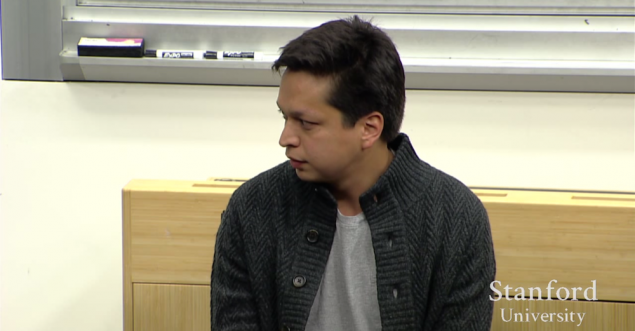
Ben Silberman: It seems to me to look for employees can be anywhere. For example, the first people we hired were absolutely from different places. I then place ads on Sraigslist and view pages on the site Techtalks.
We also give a small "barbecue party" in the office, bring your own food and drinks, and just arranged communication with employees. And almost every time I went to buy coffee at Philz, one of your employees [workers Stripe] looking for people there for the company, because your office is strategically located next to the best coffee shop. But I think what really helpful people often already occupied by some other activity, and it is necessary to look for them, rather than wait until they find you. And requires three times as much effort, if no one has heard about the product, you are working on, or does not use it.
John Collison: Yes, and also very important to make a qualitative «elevator pitch», not only for investors, but also simply because everyone with whom you are facing today, six or twelve months can apply for place in your company.
So start advertising your product and have people to your company needs as early as possible. Recruitment takes a lot of time, so constant popularization of your business i> will be very useful later.
Patrick Collison: This may be a bit off topic, but some of our friends have set up their company during his studies. And we started thinking, what is wrong in their companies. And, I think, their most common mistake was very narrow specialization or improper activity them.
If you open a company while studying, then there is a serious discrepancy in the time slots. The educational process involves division into semesters, while the existence of the company in the form of a startup takes five to ten years. And I think it brings a lot of problems since, in principle, very difficult to type the command for doing some narrowly focused activities.
For example, if you tell someone that you are going to build a rocket for the flight to Mars, this task seems virtually unenforceable, but at the same time incredibly steep. Very easy to convince people to take up its implementation. It might be better not to bring any concrete examples, otherwise seem that we have already created some kind of a startup. But if you take for some specific activities, in general, based on the "educational" problems, then find people willing to work with you, it will be much harder.
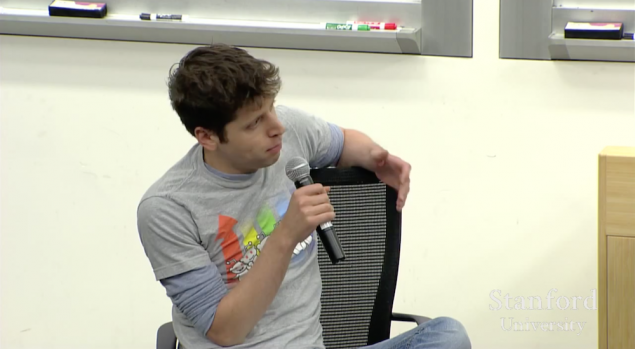
Sam Altman: A question that is often asked is how do you, as experienced entrepreneurs, define who is an effective employee?




























